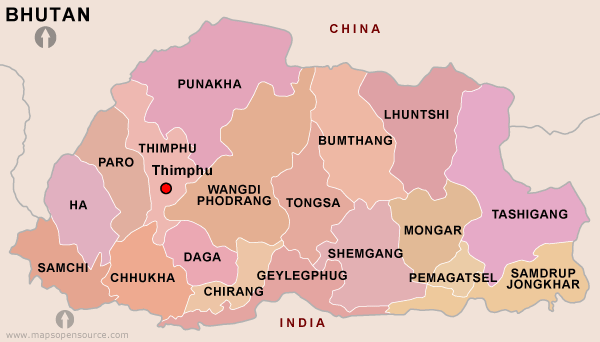|
Sonam Topgay Dorji
Sir Raja Sonam Topgay Dorji CIE ( dz, སྟོབས་རྒྱས་རྡོ་རྗེ་; Wylie transliteration: ''Stobs-rgyas Rdo-rje''; 1896–1953), also called Tobgay, was a member of the Dorji family and Bhutanese politician who served between 1917 and 1952 in the Royal Government under the First and Second Kings of Bhutan. During this period, Topgay Dorji officially held the posts of ''Gongzim'' (Chief Minister), ''Deb Zimpon'' (Chief Secretary), and Trade Agent to the Government of Bhutan. As such, Topgay Dorji was responsible for fostering Anglo-Bhutanese relations, and later, Bhutan–India relations. Topgay's ties with the west and modernist political factions contributed significantly to the modern political landscape and modernization of Bhutan. Topgay Dorji inherited his positions from his father, ''Kazi'' Ugyen Dorji, who was instrumental in advising Ugyen Wangchuck before and after he became the First King of Bhutan. Topgay Dorji lived, worked, and died at ... [...More Info...] [...Related Items...] OR: [Wikipedia] [Google] [Baidu] |
Order Of The Indian Empire
The Most Eminent Order of the Indian Empire is an order of chivalry founded by Queen Victoria on 1 January 1878. The Order includes members of three classes: #Knight Grand Commander (GCIE) #Knight Commander ( KCIE) #Companion ( CIE) No appointments have been made since 1947, the year that British India gained independence as the Union of India and Dominion of Pakistan. With the death of the last surviving knight, the Maharaja Meghrajji III of Dhrangadhra, the order became dormant in 2010. The motto of the Order is ''Imperatricis auspiciis'', (Latin for "Under the auspices of the Empress"), a reference to Queen Victoria, the first Empress of India. The Order is the junior British order of chivalry associated with the British Indian Empire; the senior one is The Most Exalted Order of the Star of India. History The British founded the Order in 1878 to reward British and native officials who served in British India. The Order originally had only one class (Companion), but exp ... [...More Info...] [...Related Items...] OR: [Wikipedia] [Google] [Baidu] |
Lhotshampa
The Lhotshampa or Lhotsampa ( ne, ल्होत्साम्पा; ) people are a heterogeneous Bhutanese people of Nepalese descent. "Lhotshampa", which means "southern borderlanders" in Dzongkha, began to be used by the Bhutanese state in the second half of the twentieth century to refer to the population of Nepali origin in the south of the country. After being displaced as a result of the state-run ethnic cleansing and living in refugee camps in eastern parts of Nepal, starting in 2007, most of the Lhotshampas, or Bhutanese Refugees, were resettled to various countries, such as the United States, Canada, Australia, the United Kingdom, and other European countries. the number of Lhotshampa in Nepal is significantly lower than that in the United States and other countries where they have resettled. People of Nepalese origin started to settle in uninhabited areas of southern Bhutan in the 19th century. History The first small groups of Nepalese emigrated primarily fr ... [...More Info...] [...Related Items...] OR: [Wikipedia] [Google] [Baidu] |
Ashi Tashi Dorji
'' Ashi'' Tashi Chodzom Dorji (born 29 August 1923) is a much-loved figure in Bhutan, having played a significant role in modern history, international relations and cultural life. Biography '' Ashi'' Tashi Dorji, sister of the Queen Grandmother and grand-aunt to the current King, was born in Bhutan House in Kalimpong Kalimpong (Hindi: कलिम्पोंग) is a town and the headquarters of an eponymous district in the Indian state of West Bengal. It is located at an average elevation of . The town is the headquarters of the Kalimpong district. The re ... on 29 August 1923, the daughter of ''Gongzim'' Sonam Topgay Dorji, Sonam Tobgye Dorji and Mayeum Choying Wangmo Dorji, Sikkim Princess Choying Wangmo Dorji. In 1952, she was sent by the Third King, His Majesty Jigme Dorji Wangchuck to eastern Bhutan to help the people who were being harshly taxed by local rulers, empowering her to give Kidu (land) to the Zaps and Tayps (landless classes). This became known as ''Ashi'' Ta ... [...More Info...] [...Related Items...] OR: [Wikipedia] [Google] [Baidu] |
.png)
